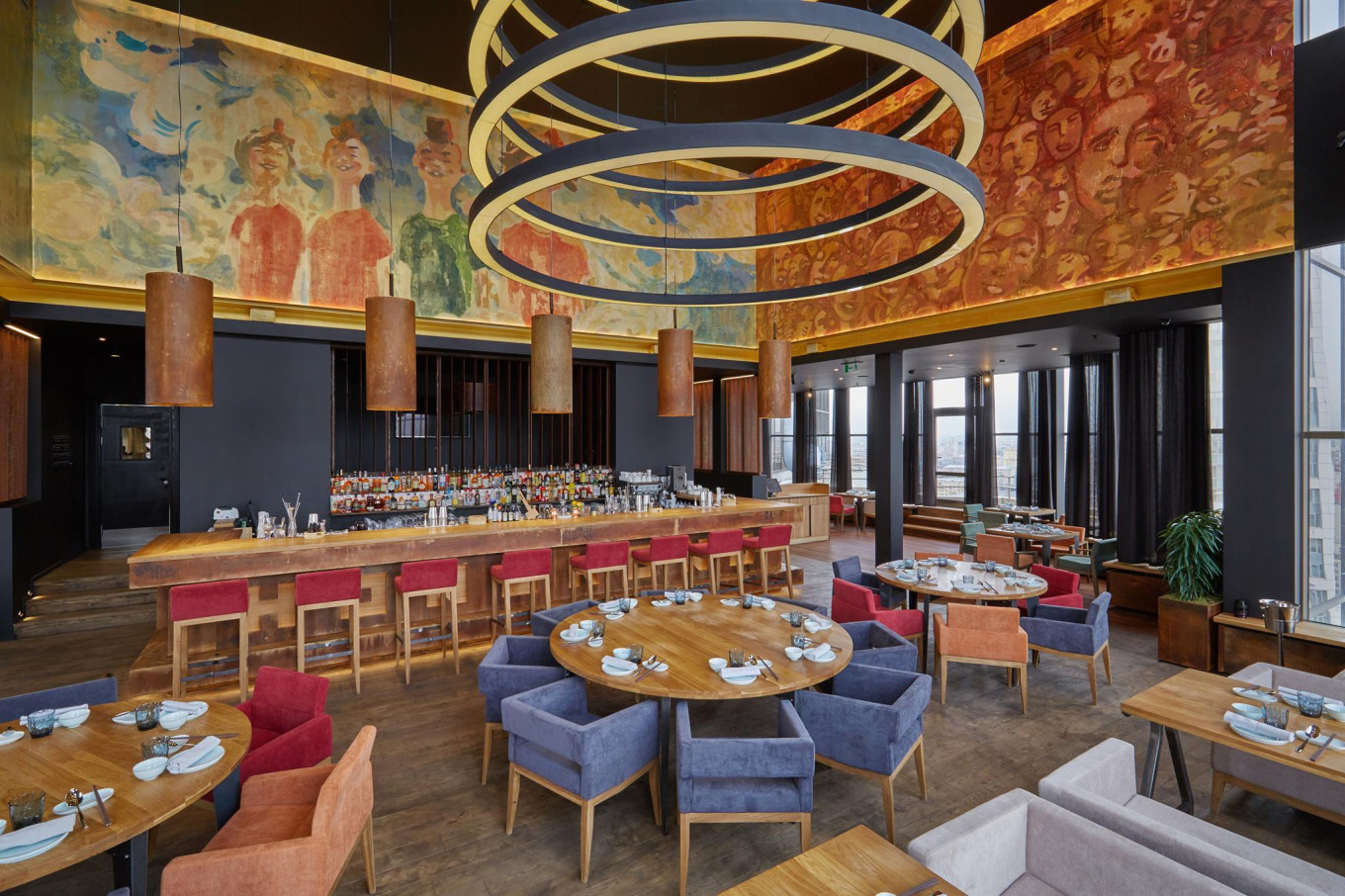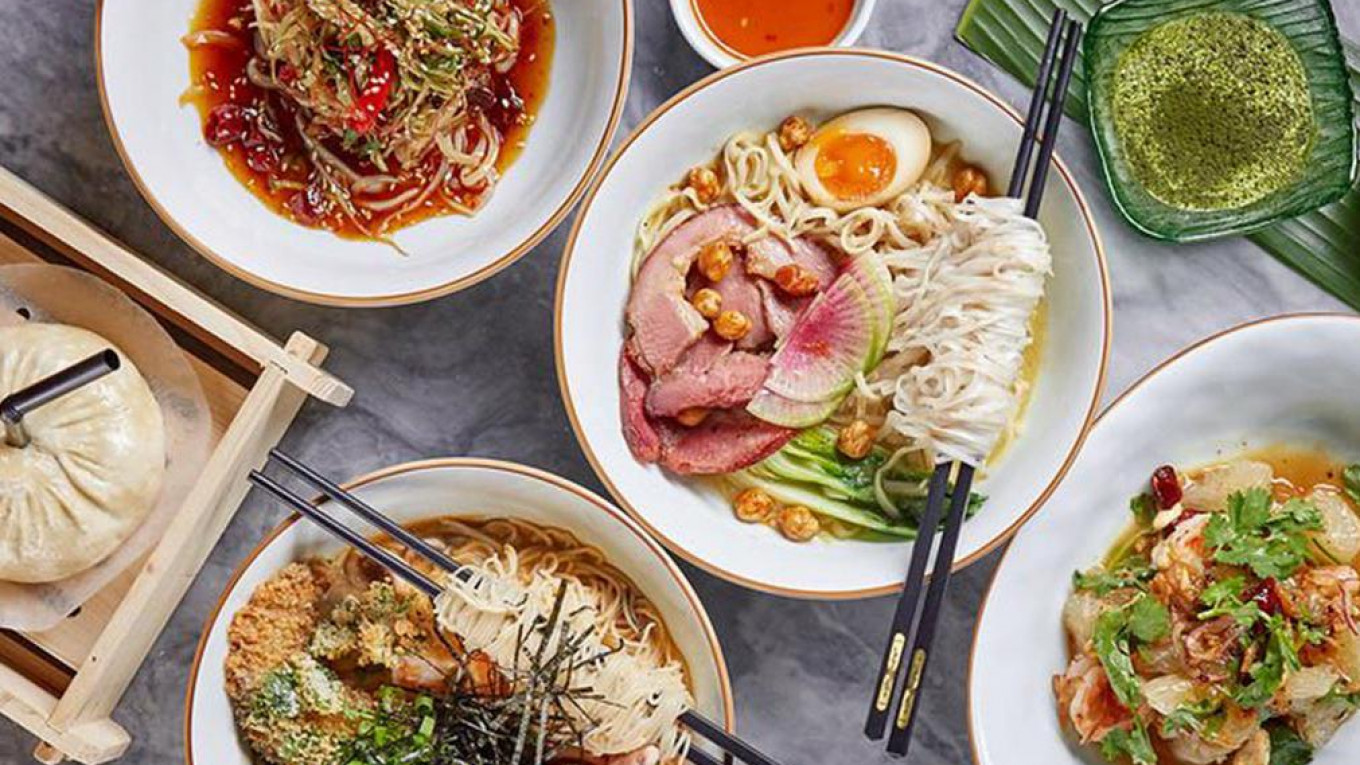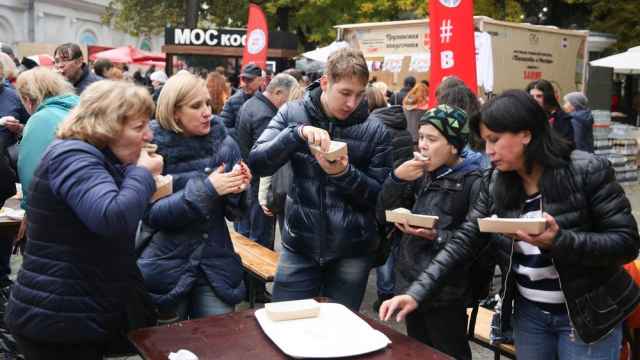Since the 19th century, Hong Kong restaurateurs have furnished luxurious dishes for wealthy Cantonese merchants while catering to British imperialists’ longing for a taste of home. Hong Kong at the Holiday Inn Sokolniki continues the culinary syncretism of its namesake, drawing on modern Western trends for dishes Europeans would expect on a Chinese menu.
For example, Hong Kong has transformed the classic Chinese spring rolls — greasy vegetables encased in a hard-fried casing — into the light salad of a 21st-century business professional. Here it is more of a spring greens salad, rolled in transparent rice paper, sliced like sushi, and drizzled with chipotle mayonnaise (480 rubles/$8.20).
Hong Kong has similarly adapted dim sum, the island-city’s signature dish, for European taste buds — there are Xiao Long Bao steamed dumplings with chicken and truffles (320 rubles). There are even crispy Chinese wontons, but with Eastern European blood sausage (320 rubles). The bite-sized dumplings fill the mouth with a pleasant chewiness.
The interior design and music selection hark back to the 1970s. The carrot- and lime-colored chairs are boxy, but new and comfortable. Lounge music wafts throughout the three rooms, drifting occasionally into light funk and disco.

Although the website promises a great view, the panoramic windows from the 24th floor of the Holiday Inn fail to compete with the towers of Moscow City, though the restaurant is nonetheless a pleasant spot for lunch.
It may not be the trendiest spot in town, but Hong Kong doesn’t need to attract the crème de la crème with windows or pretend authenticity. Business travelers staying at the Holiday Inn form the majority of the restaurant’s clientele, and presumably, many hail from Asia. Nevertheless, the bartender adds a touch of class to the proceeding by preparing the pear and ginger tea like a specialty cocktail, measuring, chopping and simmering the concoction until the waitress poured it milky-smooth for the table (320 rubles).
Hong Kong natives often celebrate life’s big moments with a fancy restaurant meal crowned by an expensive dish. A nearby table of Asian customers continued the tradition here, ordering a luxurious dish “recommended for four people” — Peking Duck with Russian pancakes (1,500 rubles). The chef personally sliced the roasted duck with a show, layering the fatty fowl into Russian pancakes (blini). A smaller portion of steamed duck can be had for 590 rubles, cloaked in Hoisin sauce and ornamented with mandarin oranges.
As in any classy Asian joint, Hong Kong’s smock-clad servers replaced the serving utensils and small plates for each course. Unfortunately, the oversized plastic chopsticks make the actual eating quite a challenge.
There are eight dishes on the dessert menu at Hong Kong, and it was definitely a case of saving the best for last. The chef spun a delicious tapioca pudding (sago-mango) – light, cool, and naturally sweet, served on a bed of crushed ice and set off by bright slices of yellow mango and fuchsia passion-fruit (320 rubles). In the brisk Moscow May, the “sago-mango” summoned visions of the tropics.
Above the bar, a mural depicts children in red T-shirts against a blue-sky background, evoking the optimism of the socialist-era Pioneer scout clubs. Perhaps Hong Kong’s fusion points toward another happy moment in Russia’s and China’s shared history.
A Message from The Moscow Times:
Dear readers,
We are facing unprecedented challenges. Russia's Prosecutor General's Office has designated The Moscow Times as an "undesirable" organization, criminalizing our work and putting our staff at risk of prosecution. This follows our earlier unjust labeling as a "foreign agent."
These actions are direct attempts to silence independent journalism in Russia. The authorities claim our work "discredits the decisions of the Russian leadership." We see things differently: we strive to provide accurate, unbiased reporting on Russia.
We, the journalists of The Moscow Times, refuse to be silenced. But to continue our work, we need your help.
Your support, no matter how small, makes a world of difference. If you can, please support us monthly starting from just $2. It's quick to set up, and every contribution makes a significant impact.
By supporting The Moscow Times, you're defending open, independent journalism in the face of repression. Thank you for standing with us.
Remind me later.






